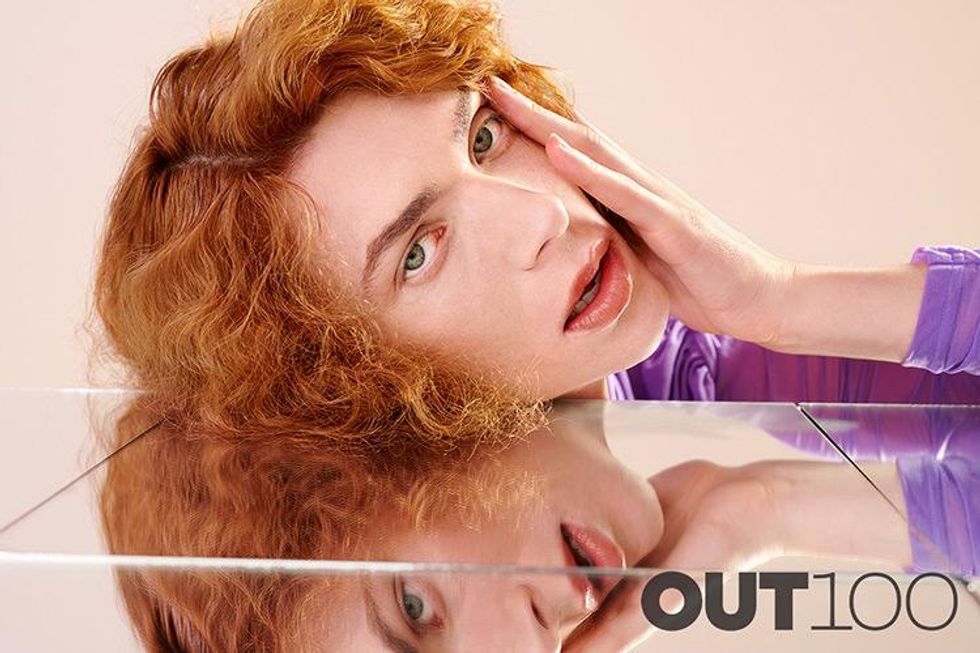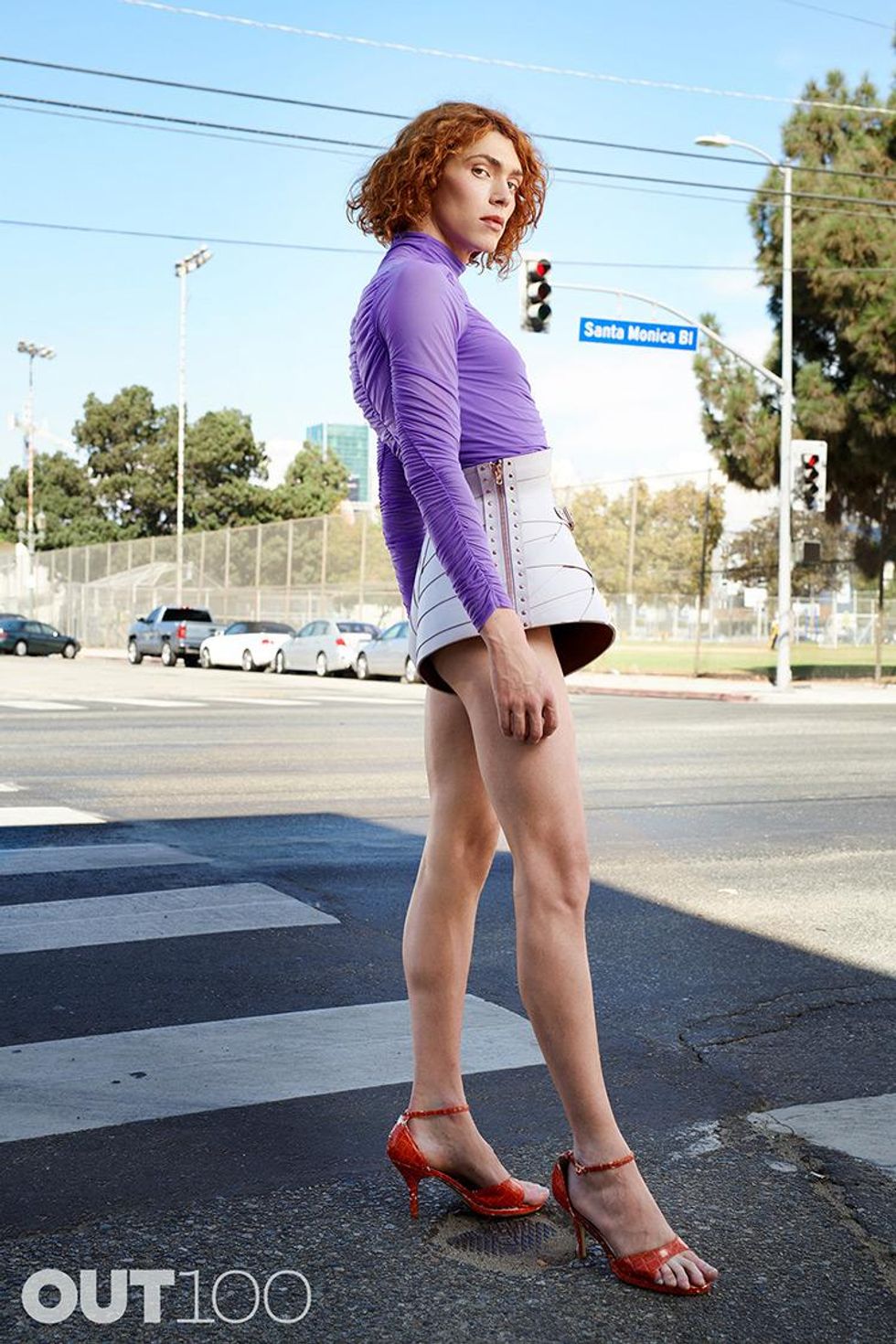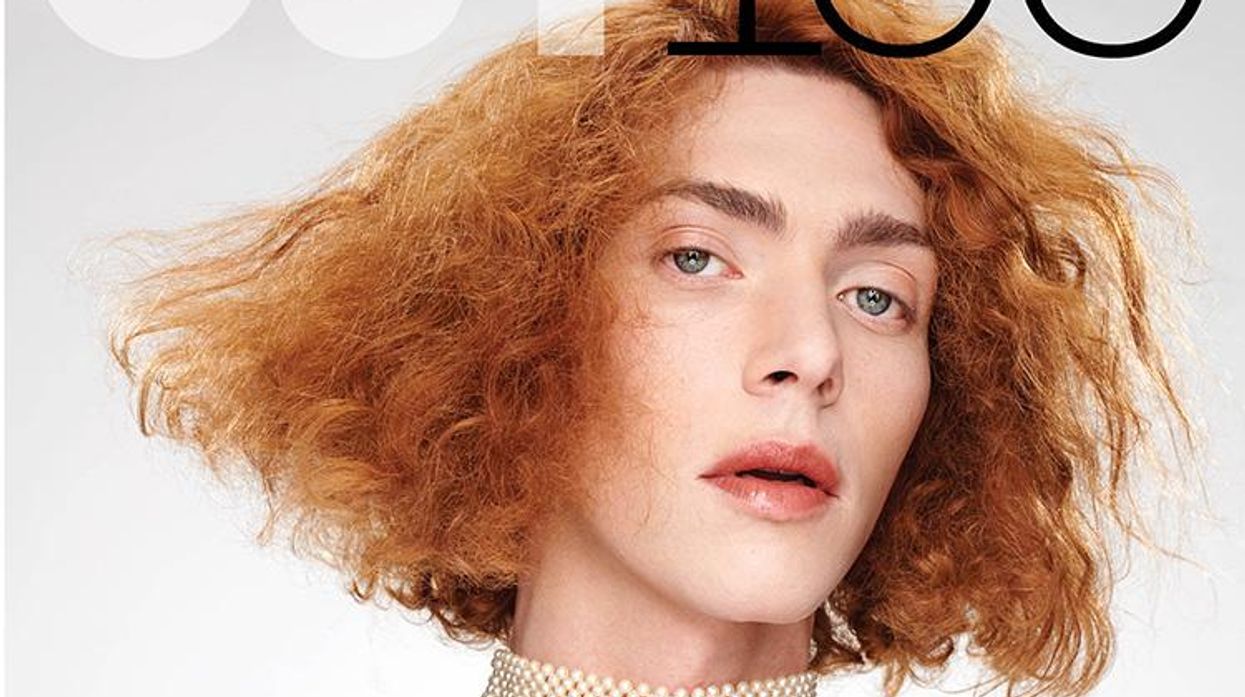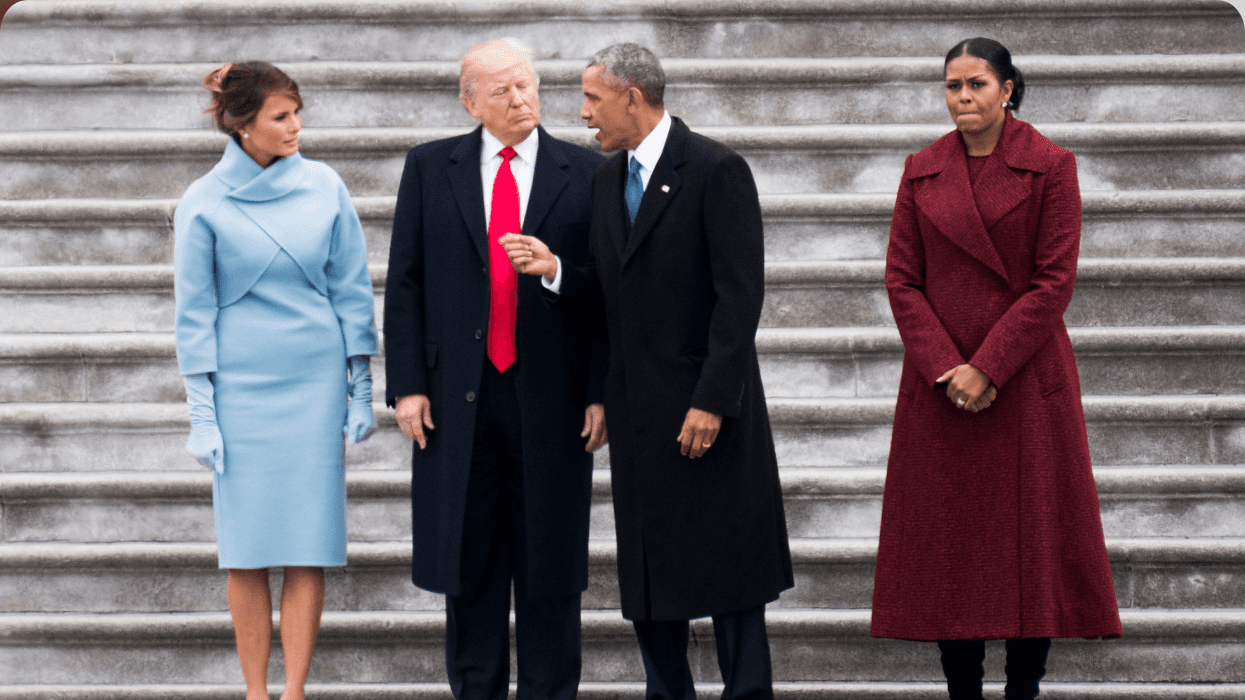There's electricity among the youthful crowd awaiting SOPHIE's emergence onstage inside Brooklyn Steel, a repurposed manufacturing plant. I stand mid-orchestra, pressed against Juul-sucking fans, as crimson lasers buzz overhead and a hum rumbles from the speakers. At stage right, the artist manifests, her form distorted behind a maze of screens. Slowly, she traverses the stage, a lithe silhouette, until she takes her place at its center. Swaddled in a gauzy wrap that billows over a latex skirt and rhinestone bralette, she arches her spine. Sounds crescendo into a cry of "Take me to Dubai" -- a tease of a new track of the same name -- and SOPHIE commands me to move.
That was September, and what I witnessed was a metaphor for the Scotland-born, Los Angeles-based producer-turned-pop-star's rising career, which has involved a hard-won struggle toward stepping into view. A little more than a year ago, "SOPHIE" was still a faceless moniker for a musician affiliated with producer A.G. Cook -- with whom she worked on material for soda-sapphic pop persona QT -- and the subgenre of PC Music, known for its exaggerated electronic riffs. Soon, questions swirled about SOPHIE's biography and gender. As she invited other artists to perform onstage in her place and avoided questions about her provenance, SOPHIE left most fans with only her name to go by. Many presumed she was a male studio geek hiding behind the feminine alias, a notion bolstered by interviews in The New York Times and Rolling Stone, in which the masculine pronoun was used.
But with the October 2017 release of the video for her single "It's Okay to Cry," we finally saw SOPHIE. I, was that a teardrop in your eye? I never thought I'd see you cry, she croons straight into the camera, her face framed by a pyramid of auburn-red curls and her hand caressing her cherry pout. The green-screen weather behind her shifts from marshmallow clouds to a thunderous downpour. This, clearly, was the moment that SOPHIE was ready to bare herself -- visually, emotionally, sonically -- and to fully embody her art as a singular entity.

Her reluctance to appear as a frontwoman was also, perhaps, an effort to detangle the whole identity narrative before it eclipsed her work. "My music is political, but talking about politics is boring," she says. "I'd rather have a more emotional conversation through the music. You can say something more multidimensional. Pop music is the most relevant format we have to discuss anything. A song can have meaning to people anywhere, without any context."
SOPHIE's music is an innovation when it comes to the electro-pop formula: a brain-tingling ecstasy of disparate (and often disorienting) synthetic sounds that are at once conceptual and surprisingly danceable. Her 2015 compilation album, Product, caught widespread attention with the sped-up, high-pitched vocals of "Bipp" and the fizzing bubble-pops of "Lemonade." SOPHIE says, "I make music to process my feelings;" however, the saccharine sweetness of her songs is often born of hard times. "Living in London -- sometimes I was really miserable, and [Product is] the music I created at that time. It certainly wasn't a celebration of feeling great or lemonade."
With this past June's release of SOPHIE's first studio album, Oil of Every Pearl's Un-Insides, which contains "It's Okay to Cry," the artist stuck to her signature plastic-pop vernacular while expanding to new, experimental territory. It's a vulnerable departure, with singles like the beat-heavy "Ponyboy," as well as "Faceshopping," which interrogates the line between artificiality and reality. It also boasts a roster of increasingly ambitious tracks, like "Is It Cold in the Water," a composition that swells with synths as a voice breathes, I'm freezing / I'm burning / I've left my home. "I'm trying to get to a point with my music where I'm just responding exactly to the way my body feels in that moment," she says.
Photography by Martin Schoeller.
Styling by Mindy Le Brock.
Makeup: Christina Waltz.
Photographed at The Studio, Los Angeles





























I watched the Kid Rock Turning Point USA halftime show so you don't have to
Opinion: "I have no problem with lip syncing, but you'd think the side that hates drag queens so much would have a little more shame about it," writes Ryan Adamczeski.